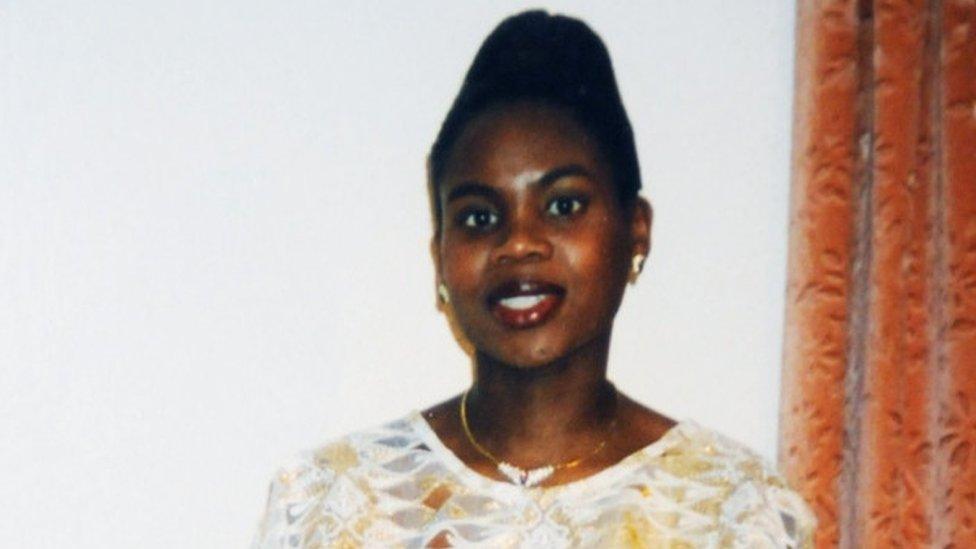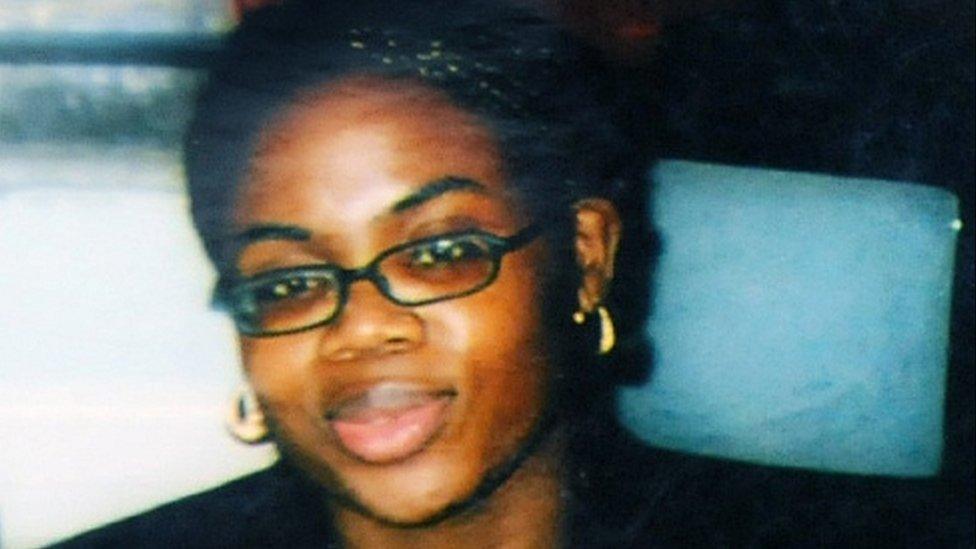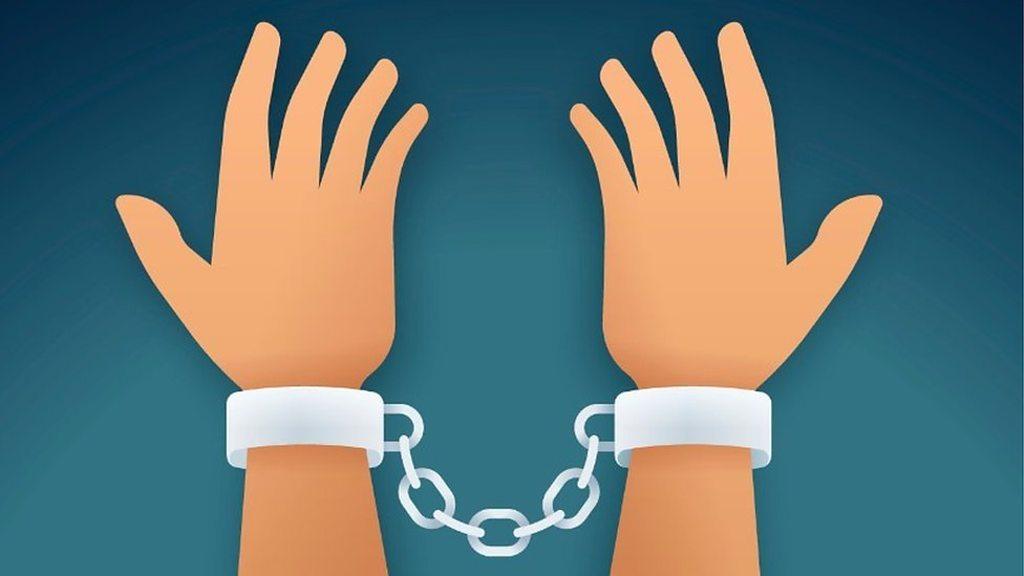Victims of mentally disordered offenders 'ignored'
- Published

Abi Ilumoka's family said they were not told her killer had been given escorted visits in the community
Victims of offenders whose mental illness contributed to their crime are being "ignored" in England and Wales, the Victims' Commissioner has said.
Baroness Newlove called for them to be given the same rights as other victims.
One woman, whose sister and unborn child were killed, said the family was not told when the offender - who had paranoid schizophrenia - was allowed escorted visits into the community.
The Ministry of Justice said it would consider Baroness Newlove's comments.
'Inconsistency'
Baroness Newlove conducted a report which suggested that while it was right for the justice system to treat mentally disordered offenders differently to those of a "sound mind", all victims should receive the same entitlements under the Victims' Code.
However, she told the BBC's Victoria Derbyshire programme this was not currently the case.
"There are people who don't have a voice and it's vital that they are given the same rights to be heard, as the effect of the crimes is devastating," she said.
Her review found:
victims of mentally disordered offenders are not entitled to submit a victim personal statement (VPS) when the offender's case is reviewed by the Mental Health Tribunal
they are not entitled to attend the tribunal and present the VPS in person
some victims have to deal directly with hospital staff and not have the support of a victim liaison officer
changes announced by the government to make parole more transparent, and decisions open to challenge by victims, will not apply to victims of mentally disordered offenders
She said the report highlighted "the inconsistency" between the experiences and rights of victims of mentally disordered offenders in Scotland compared with England and Wales.
In Scotland, victims can attend the tribunal and submit their statement in person.
She said this allowed victims "to feel they have a voice in proceedings and have a fair hearing".
The Crown Prosecution Service says clinically-recognised mental disorders include personality disorders, autistic spectrum disorders, mental illnesses such as bipolar disorder and schizophrenia, and learning disabilities.

'Shaking and crying'
In 2008, Yemi Ilumoka's sister Abi was stabbed to death by her boyfriend, Benjamin Anabah, while heavily pregnant.
Anabah was diagnosed as having paranoid schizophrenia and admitted manslaughter with diminished responsibility.
The family were told he would be held indefinitely in a secure hospital.
But two years later, Yemi received an email "out of the blue" saying Anabah was going to the Mental Health Tribunal and he could be discharged. She began "shaking and crying".

Abi Ilumoka was killed by her boyfriend, Benjamin Anabah, in June 2008
She had never been informed about what a Mental Health Tribunal was or that this could happen at some point.
She later found out, with the help of her MP, that Anabah had been going out of the hospital on escorted visits for two years, without the family being told.
"All along we were thinking he's behind lock and key," she told the Victoria Derbyshire programme.
"Turned out he'd been released into the community for visits, with no risk assessment done for family.
"He'd been walking around, going to college near where my mum lives."
After finding out about his escorted leave the family has been informed that Anabah has now been moved to a secure hospital far from the family's home and has not been discharged.

Baroness Newlove said the pain and trauma felt by victims of such crimes was "no less" than other victims, and that "they deserve the same care and support".
She added that the Victims' Code should be extended to the NHS, and further training should be given to victim liaison officers and hospital staff who engage with victims, "so that they know what information they're entitled to and how they should treat vulnerable victims".
The Ministry of Justice said it was "committed to ensuring we continue to have a fair and equitable justice system which includes reflecting the needs of victims".
"This is why we are spending almost £100m on support for victims this year alone, and will publish our Victims' Strategy this summer."
It added: "Victims of mentally disordered offenders are already entitled to participate in the victim contact scheme and can make representations about conditions of discharge, such as preventing offenders making contact or entering the area where they live."
Watch the BBC's Victoria Derbyshire programme on weekdays between 09:00 and 11:00 on BBC Two and the BBC News Channel in the UK and on iPlayer afterwards.
- Published15 September 2017
